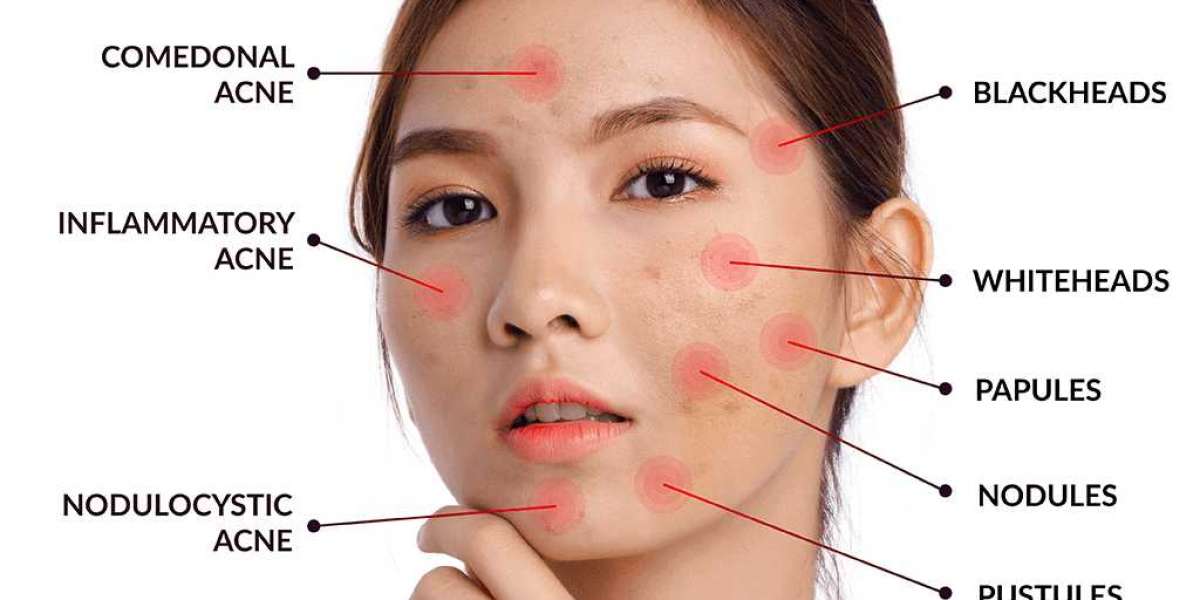Pimples, those pesky little bumps that seem to pop up at the most inconvenient times, affect nearly everyone at some point in their lives. These small inflammations on the skin are a common concern, especially during adolescence, but can also persist into adulthood for some individuals. Understanding what causes pimples, how to prevent them, and the various treatment options available can be beneficial in managing and minimizing their occurrence.
What are Pimples?
Pimples, also known as acne, are a result of clogged pores. They occur when the hair follicles or pores on the skin become blocked with excess oil, dead skin cells, and bacteria. The blockage creates an ideal environment for the growth of bacteria, leading to inflammation and the formation of pimples.
There are various types of pimples, each presenting differently:
Whiteheads and Blackheads: Whiteheads occur when pores are closed and have a small white or flesh-colored bump on the surface. Blackheads, on the other hand, are open pores clogged with oil and dead skin cells, appearing dark or black on the surface due to oxidation.
Papules and Pustules: Papules are small, raised, red bumps without pus. Pustules are red, tender bumps with white or yellow centers filled with pus.
Nodules and Cysts: Nodules are large, solid, painful lumps beneath the surface of the skin. Cysts are painful, pus-filled lumps that can cause scarring.
Causes of Pimples
Several factors contribute to the development of pimples:
Hormonal Changes: Fluctuations in hormone levels, especially during puberty, menstruation, pregnancy, and menopause, can increase oil production, leading to clogged pores and pimples.
Excess Oil Production: Overproduction of oil by the sebaceous glands can contribute to clogged pores and acne.
Bacteria: The presence of Propionibacterium acnes, a type of bacteria commonly found on the skin, can exacerbate inflammation and worsen acne.
Dead Skin Cells: The shedding of dead skin cells can mix with excess oil, leading to clogged pores and the formation of pimples.
Diet and Lifestyle: Some studies suggest a link between certain foods, such as high-glycemic-index foods and dairy products, and acne. Stress, inadequate sleep, and poor skincare habits can also impact skin health.
Prevention Tips
While it's not always possible to completely prevent pimples, certain practices can help minimize their occurrence:
Regular Cleansing: Wash your face twice daily with a gentle cleanser to remove excess oil, dirt, and dead skin cells.
Avoid Touching Your Face: Touching your face can transfer bacteria and dirt, potentially clogging pores and causing breakouts.
Healthy Diet: Maintain a balanced diet rich in fruits, vegetables, and whole grains while minimizing intake of sugary foods and processed carbohydrates.
Hydration: Drink plenty of water to keep your skin hydrated and flush out toxins.
Regular Exercise and Stress Management: Engage in regular physical activity and practice stress-relieving activities like yoga or meditation to reduce stress levels, which can impact hormonal balance and contribute to acne.
Treatment Options
Several treatment options are available to manage pimples:
Topical Treatments: Over-the-counter creams, gels, and lotions containing ingredients like benzoyl peroxide, salicylic acid, or retinoids can help unclog pores and reduce inflammation.
Prescription Medications: In cases of severe acne, a dermatologist may prescribe stronger topical treatments or oral medications like antibiotics, birth control pills (for hormonal acne in women), or isotretinoin.
Professional Procedures: Dermatological procedures such as chemical peels, laser therapy, or extraction of whiteheads and blackheads may be recommended for more severe cases or scarring.
Natural Remedies: Some people find relief using natural remedies like tea tree oil, aloe vera, or witch hazel, although evidence supporting their effectiveness varies.
Conclusion
Pimples can be a source of frustration and embarrassment, but understanding their causes and implementing preventive measures can significantly reduce their occurrence. If pimples persist or cause distress, consulting a dermatologist is advisable. With proper skincare, lifestyle modifications, and available treatments, managing pimples becomes more manageable, allowing for clearer, healthier skin.
Remember, each individual's skin is unique, so what works for one person might not work for another. Patience and consistency with a personalized skincare routine are key in effectively managing and minimizing the impact of pimples on your skin.








